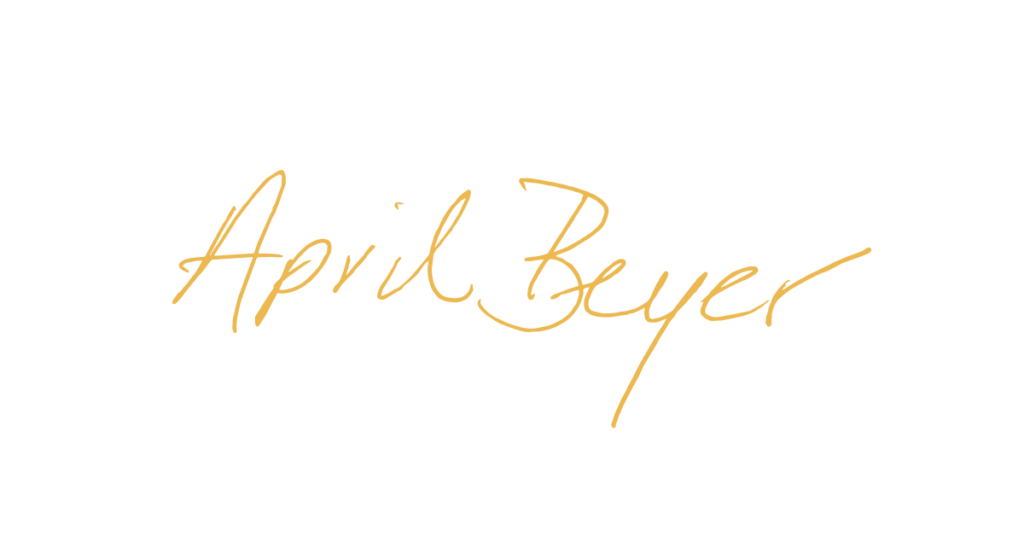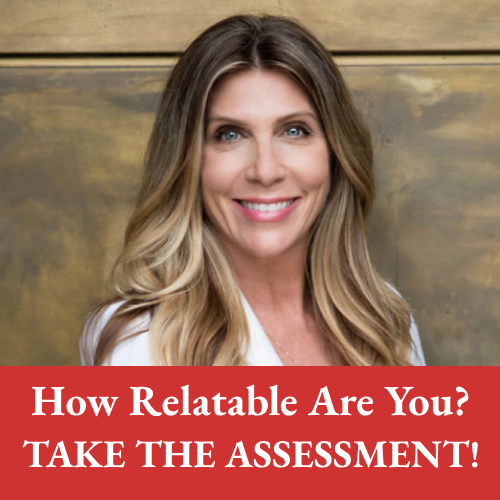Throughout my extensive experience as a relationship expert, working with couples together and individually, I’ve discovered that the most effective method for creating deeper connections is to ask questions. Questions are at the heart of learning about others, from simple get-to-know-you questions upon first meeting to profound, meaning-of-life questions that strengthen bonds. The right question can spark a deeper conversation where both parties feel instantly connected.
In all phases of relationships, from the initial spark to the rekindling of a flame after decades together, I have witnessed firsthand how vital it is to be open, honest, and, most importantly, to ask and answer the important questions that truly peel back the layers. It may not be comfortable initially, but unearthing another person’s authentic self is the key to unlocking a true and lasting connection.
This is the power that is created simply when you feel curious about someone. Defining curiosity in the context of emotional intelligence and behavior, it is a driving force in seeking an understanding of emotions and managing them effectively. Curiosity fosters self-awareness and behavioral changes, highlighting its neurological basis and implications for emotional well-being. It is essential for motivation and learning, presenting it as a tool for navigating emotional responses and fostering well-being.
As a business owner, female motivational speaker, and matchmaker, I’m always asking questions. I’ve been insatiably curious about people since childhood, so I’m thrilled to have discovered a career that calls for this trait. Every aspect of my work revolves around human connection, and I have mastered asking questions that build trust in a relationship. I want to share what I’ve learned with you.

Utilize Emotional Curiosity to Build Better Workplace Connections
Embracing your Emotional Intelligence is a vital step in cultivating meaningful connections, and it all begins by daring to ask questions for a deeper connection. Dive beyond the superficial and explore the depths of someone’s inner world. Done correctly and with care, you’ll find that people want to share aspects of themselves and feel seen and heard by you. Posing these insightful and thoughtful relationship-building questions might stretch your comfort zone. Yet, these questions, the ones that reach for the heart, lay the cornerstone of trust.
But if it is so important, why doesn’t it come naturally? After all, aren’t we born naturally curious? We travel, read, go to school, explore, and are constantly learning and evolving. As children, we ask endless questions. But as adults, sometimes the right ones escape us.
Individuals often struggle with difficult feelings, leading to confusion and overwhelm. Emotional intelligence and curiosity lead to a non-judgmental awareness that aids in understanding and responding to emotional experiences effectively.
Fostering more curiosity can combat boredom and stimulate personal growth. Curiosity is a core emotional strength that promotes creativity, learning, and emotional intelligence.
We’ve been given harmful and unhelpful advice to leave our curiosity at the door so as not to offend or intrude. So, we hold back and ask only the safe and easy questions. As a result, connections are fleeting, and we receive stock answers that make connections more challenging.
Cultivating Emotional Curiosity
This goes beyond being curious simply for the sake of acquiring information. It’s an authentic desire to delve deeper, to understand the people around you, and to deepen your relationships. This sparks an authenticity that is closely tied to emotional intelligence, which enhances our ability to understand and manage our emotions and those of others. Understanding and being curious about our emotions can improve emotional well-being and empower individuals to manage their emotional experiences more effectively. Curiosity interacts with various emotional experiences, such as sadness and anxiety, and is important in fostering emotional intelligence and improving well-being. To define curiosity, it is the desire to know and learn, which is crucial for cognitive advancement and plays a significant role in enhancing emotional well-being and fostering better interpersonal relationships.
Feeling emotionally curious means being finely attuned to the feelings and experiences of those in your sphere. We cycle through dozens of emotions, and when you can see this in others, you can ask questions based on not only what you hear but also what you observe in behavior. It demands a deep-seated fascination with others, accompanied by a genuine willingness to listen and learn from their unique journeys. Acknowledging and exploring complicated feelings can lead to better emotional health and resilience. This involves asking monumental relationship-building questions and genuinely feeling intrigued by the answers. And yes, it also means opening up about your thoughts, feelings, and vulnerabilities. I understand that initiating conversations by asking questions can sometimes feel challenging, but it is worth it.
Nurturing your natural curiosity is one of the most critical skills you can develop, especially when building strong relationships at work. People are the powerhouse behind every organization, and when you connect with them significantly, there is no limit to what you can accomplish.
Strategies to Spark Deeper Connections
Master the Art of the Inquisitive Heart
I’ve mastered asking relationship-building questions, and so can you. It doesn’t require years of training. You already possess everything you need. It all starts with your heart, brain, and feelings.
If your questions spring from a place of genuine care and interest, you can’t go wrong. The answers you get to your meaningful questions give you insight into another person and can aid in self-discovery. After all, we’re all on a journey in search of inspiration and deeper meaning in life, and these nuggets of wisdom often lie beneath the surface, waiting to be discovered through introspection. Curiosity has its own inherent value and purpose, and exploring your own reason for being curious can lead to deeper understanding and engagement with the world around you. Unleashing this is a win-win for you and those you interact with. Certain emotional states can enable or block curiosity, making it essential to understand how emotion impacts our ability to engage and learn.
Asking questions should be part of developing your communication strategies in the workplace or in day-to-day life. But don’t just stick to superficial topics and avoid asking non-work-related questions. Exploring an employee’s thoughts about work is important, but it is also crucial to recognize that you are leading individuals with diverse experiences and emotions.
Asking the right questions to ignite deeper connections might initially feel intimidating, but cultivating a safe and supportive environment will make the transition smoother than anticipated. And in return, as you express your own vulnerability, you will build even more meaningful relationships.
By wholeheartedly embracing this in your life, you can gain an understanding of your own motivations and desires while also tuning into your team’s motivations and aspirations.
Observe with Genuine Curiosity
One of the skills I’ve honed is my ability to thoughtfully observe individuals and their interactions. It’s fascinating and has taught me about human behavior and what motivates people to better themselves and their relationships.
As you continue on your journey toward building strong relationships at work, I encourage you to unleash the power of observation.
Choose someone to observe and give your emotions and thoughts your undivided attention. Focus on understanding what you see and how you feel. The limbic system plays a crucial role in emotional processing, generating emotions, and helping us understand our internal experiences. By acknowledging physical sensations, you can better navigate your internal experiences and improve your mental health. Dive even deeper and ponder what emotions this individual might be feeling. Don’t worry, you don’t need to share your thoughts, this exercise is simply a way to boost your own powers of observation.
Find the Perfect Balance Between Asking and Listening
I can’t tell you how often I’ve seen someone master the art of asking questions and then completely miss the mark by not listening to the answers. What is the point of asking a question if you don’t listen to the response? And not just with your ears, but also with your heart. Listening is a simple tool that offers extraordinary rewards.
Often, my clients either one-up the other person or relate to them solely based on shared experiences. Neither approach results in engaging and comfortable conversations. When someone is answering a question and observes the other person’s attention wandering, it severs the connection and erases any trust that has been earned. Emotional resonance and understanding are key, not merely mirroring experiences or feelings.
Instead, focus on what matters and then delve further into the answers you receive. I remember working with a couple where one partner would answer questions with a yes or no. Initially, her partner would try to dig deeper, but inevitably, the conversation would grind to a halt, with both individuals feeling frustrated and disconnected. After counseling, she began expanding on her answers, which sparked her partner’s curiosity, and the conversation began to flow organically. This fresh approach led to a meaningful relationship.
The key is listening attentively and engaging with the other person’s words and body language. Show genuine interest with follow-up questions that demonstrate your heartfelt desire to know them on a deeper level. Understanding and managing the complex and often confusing internal experience of the emotional world is crucial in this process. Most importantly, avoid turning the conversation back to yourself or guiding it in a different direction. This is about cultivating empowerment within your teams. Focus on the other person, acknowledge their emotions, and listen with empathy and curiosity.
Once again, I must stress the importance of this level of connection in the workplace. An organization’s success is due to its people, so building trust is paramount. One of the greatest communication strategies a leader can deploy in the workplace to achieve this is engaging in active listening. How can you expect your team to listen to you if you never truly listen to their story?
How the Emotional World Inspires Questions for Deeper Connections
I feel incredibly lucky. I’ve always been fascinated with learning what drives individuals, what sparks joy, and how their sense of safety and fulfillment is nurtured. My deep love of connecting with people guided me into a career that feeds my daily curiosity. Discovering who people are underneath it all, understanding their core values, and identifying how we can collaborate toward shared goals is incredibly rewarding to me. Connecting with others in such a beautiful way infuses me with energy and a sense that I am contributing to their happiness. Understanding one’s emotional state and their motivations can significantly enhance psychological well-being. The Harvard Business Review discusses how emotional well-being programs in organizations can further support this enhancement.
When I support someone on their journey toward becoming more emotionally curious, I believe in sharing what has worked for me and inviting them to mold my techniques to fit their style. As a leader, regardless of your approach, you need to ask thoughtful questions and share your own emotional experiences to create a reciprocal exchange that builds trust and encourages open communication.
The more you ask, the more you learn, and the better your life and the lives of those around you will be.
I recognize that observing people might feel uncomfortable at first. Our natural instinct is to not pry too deeply or peer too intently into another person’s inner self. Still, as a relationship coach, I know firsthand how important it is to be observant.
Once you have gathered your observations, you can formulate relationship-building questions that feel natural based on what you’ve witnessed. As a result of being fully present and aware of another person’s actions and emotions, your questions will be insightful and allow you to connect on a deeper level. The journey toward developing your observation skills will heighten your ability to be attentive and empathetic, and people will positively respond to you.
You may also learn some interesting tidbits about human behavior along the way.
No matter how many times I’ve seen it, I’m always astonished by how people can cycle through a rollercoaster of emotions in a matter of minutes. Even though this pattern still surprises me, I’ve learned how to leverage it to pose influential questions and offer thoughtful responses. This ability to meet others where they are is a powerful way to spark instant connection and foster trust.
It’s just as influential in professional relationships. The importance of connection in the workplace cannot be overstated. As a leader, it should be paramount. Being a keen observer creates meaningful connections and cultivates a culture where everybody feels valued and understood.
Foster Psychological Safety for Better Mental Health
In any relationship, psychological safety should be paramount to both parties. This tends to be a fifty-fifty effort in personal relationships, but in the workplace, it is one hundred percent your responsibility. Ultimately, it falls to you to create a psychologically safe environment where team members feel comfortable asking questions, providing feedback, and being authentically themselves without fear of judgment or reprisal.
You can start creating this type of environment by asking questions based on your curiosity rather than a desire to pry or an attempt to invade someone’s privacy.
Remember, it is about understanding and acknowledging feelings rather than opening up a Pandora’s box of personal and often painful details. Curiosity about our emotions and experiences is essential for improving mental health. As you embark on this journey and start to master the art of the inquisitive heart, the observation skills you also develop will now play out together as you discover how to strike the perfect harmony between showing interest and respecting boundaries.
Create an inviting space for open dialogue by requesting permission before touching on potentially sensitive subjects and parsing out questions individually. Pay close attention to the other person’s words and non-verbal cues so you can steer the conversation to neutral territory if needed.
But don’t be afraid to go deep. As long as you are respecting the other person’s boundaries, are genuinely interested in their emotions and experiences, and are responding with empathy and care, your questions, paired with their responses, are a phenomenal way to build trust.
Also, it’s important to open up about your own experiences or challenges. Your willingness to be vulnerable will create a safe atmosphere and inspire your team to be open and authentic.
In the end, fostering psychological safety is about creating an environment where everyone feels comfortable being their true selves. You can build deeper connections and a more cohesive, innovative, and engaged team by asking the right questions and genuinely listening to the answers.
Conclusion: The Power of Emotional Curiosity
By embracing this new perspective, you’re improving your own emotional intelligence and well-being and creating a more connected, empathetic, and productive workplace. It’s about looking beyond the surface, asking the right questions, and genuinely listening to understand. When you foster an environment where people feel safe to be themselves, you unlock their full potential, paving the way for incredible growth and success.
So, let’s start asking those deeper questions, observing with genuine curiosity, and listening with our hearts. The connections we build today will shape the successes of tomorrow.






















